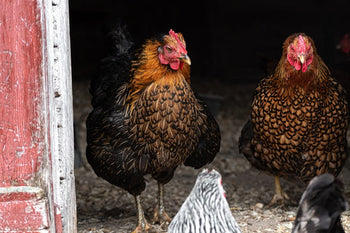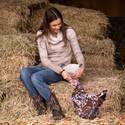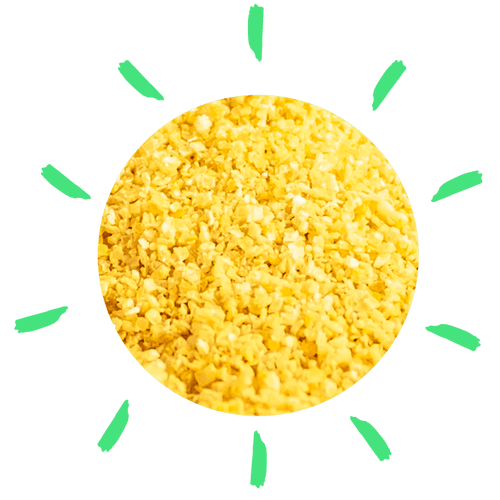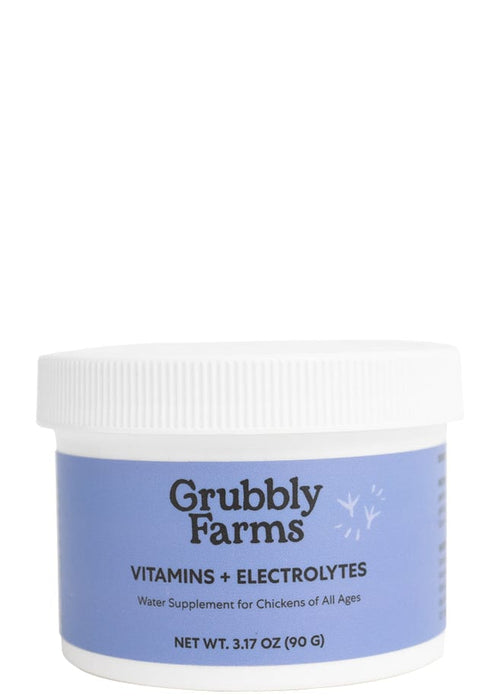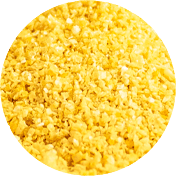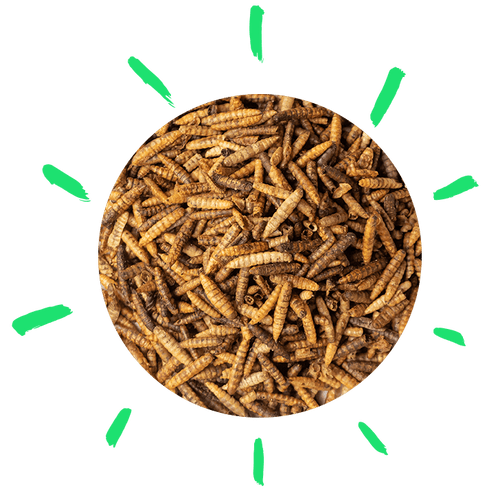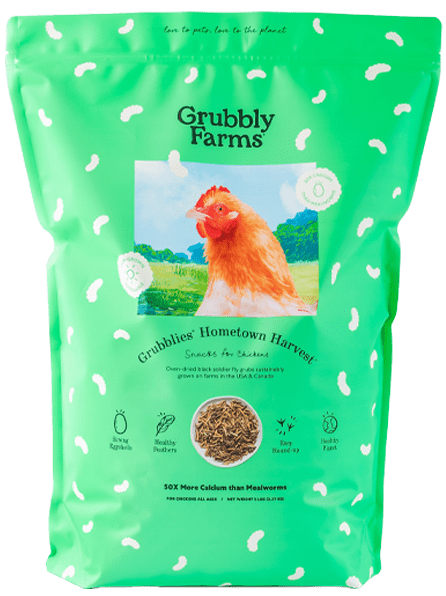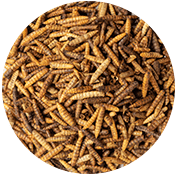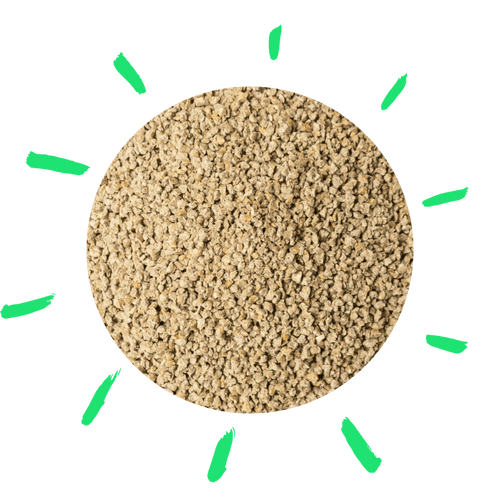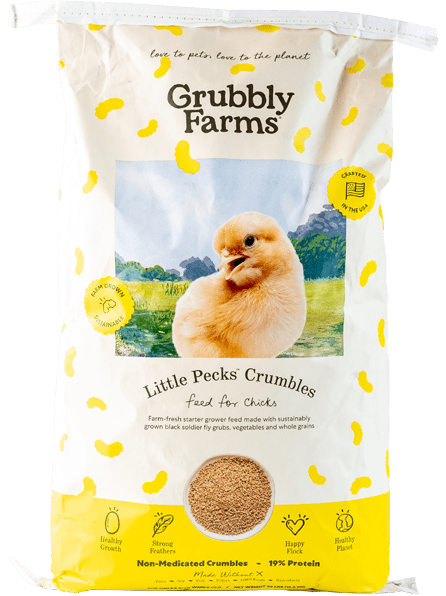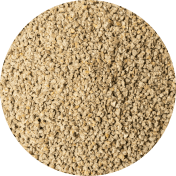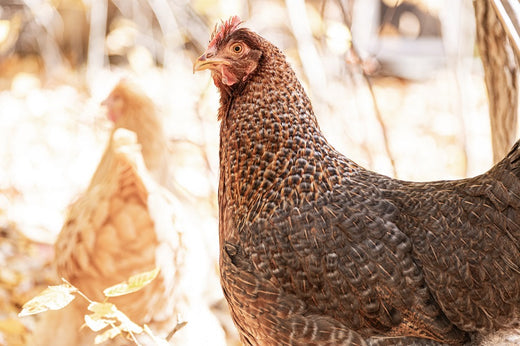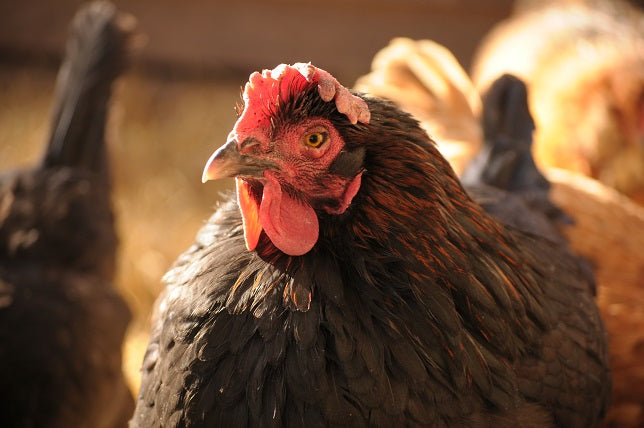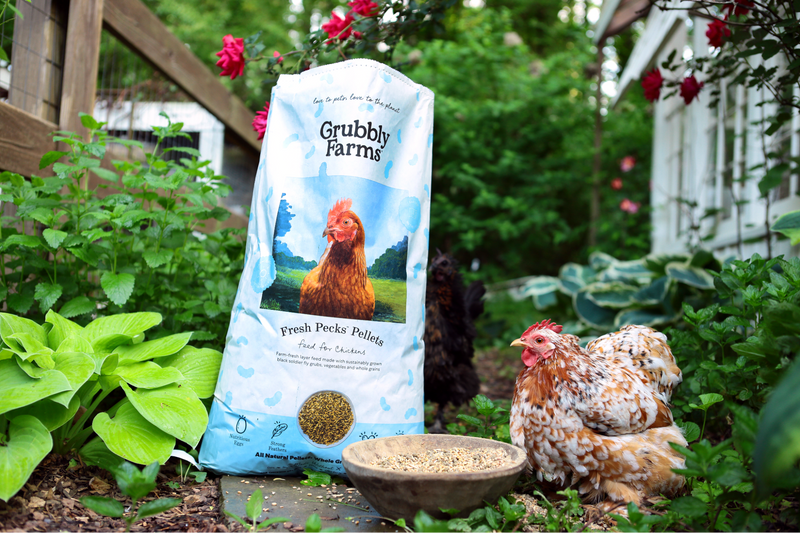Internal and external parasites are two of the most common health issues for backyard flock. Internal parasites are parasites that live within a chicken’s body. They steal nutrition from a chicken’s diet and can become so prolific that they cause major internal organ damage. Chickens are regularly exposed to potential internal parasites hosts in their environment. Learning how to control and manage internal parasites is essential for maintaining optimal flock health!
Common Internal Chicken Parasites
Worms are the main group of internal parasites that plague chickens. Internal worm parasites can further be divided into two categories: round worms and flatworms.
Roundworms are thin and threadlike. They have a tubular shape which gives them their name of ‘roundworms’. Roundworms are considered nematodes and there are several different species of roundworms that each invade a different part of the chicken. These nematodes can have either a direct lifecycle or an indirect lifecycle, depending on the species of worm. Indirect parasite lifecycles require an intermediate host, often in the form of other insects and bugs.
Roundworms can be identified based on their appearance and where they are found in the chicken’s body. These are the most common species of roundworms that infect chickens (1):
- large roundworm
- capillary worm
- crop worm
- cecal worm
- stomach worm
- eye worm
- gapeworm
- gizzard worm
Flatworms, as the name suggests, are flat and ribbon-like or leaf-like in shape. Ribbon-shaped flatworms are called cestodes while leaf-shaped flatworms are called trematodes. Like roundworms, there are several different species of flatworms. Those species can further be divided into two categories: tapeworms and flukes. Flukes are not a common parasite in the United States as they prefer warm, tropical climates. All tapeworms infect the intestinal track of a chicken, and they all require an intermediate host. Here are the most common types of flatworms that infect chickens (1):
- short flatworm
- microscopic flatworm
- threadlike flatworm
- large chicken flatworm
- branching flatworm
- sawtooth flatworm
- nodular flatworm
How Chickens Get Internal Parasites

Chickens become infected by internal parasites when they consume the worm eggs, worm larvae, or intermediate hosts that contain worm eggs or larvae. Once the worm eggs or larvae enter the chicken, they then travel to the desired part of the body and start feeding. As the parasites feed, they mature and start reproducing. An internal parasite infestation occurs when a chicken’s body can’t naturally control the population of internal parasites.
Chickens usually encounter internal parasites through their environment. There can be both direct hosts and indirect hosts that transfer internal parasites to chickens. Indirect hosts include insects such as cockroaches, earthworms, flies, beetles, pillbugs, slugs, snails, grasshoppers, termites, earwigs, ants, and dung beetles. These are often referred to as intermediate hosts.
Direct hosts include chickens who already have an internal parasite infestation, wild birds, insects, and other wildlife. Internal parasites are spread through the dung of direct hosts. In any case, internal parasites usually prefer swampy, moist, damp environments. They tend to be the most active during the spring and fall when the weather is neither too hot nor too cold.
Effects of Internal Parasites on Chickens
Chickens who have a healthy immune system and who live in a clean, well-managed environment will build immunity to worms as they mature. The chicken’s body will be able to naturally control small quantities of internal parasites and expel them before an infestation occurs (1). When a chicken’s immune system becomes suppressed or the chicken overconsumes worms or worm hosts, then it can lead to what’s called a ‘worm overload’.
A worm overload has a negative impact on the health and productivity of a chicken. Most internal parasites feed off the nutrition that a chicken consumes through its diet. The parasites steal nutrition that a chicken would normally use for staying healthy and nourished. A worm overload can lead to a slow decline in health, a decrease in laying, and malnourishment. In severe cases, a worm overload will lead to organ damage which can then cause organ failure and death.
Even if a chicken only has a small quantity of internal parasites, those parasites can compromise the immune system enough to make the chicken more susceptible to other diseases. Chickens with internal parasites won’t be able to effectively fight off other harmful pathogens, bacteria and microbes that cause diseases such as coccidiosis and respiratory diseases. Internal parasites can also cause diarrhea that leads to dehydration.
Spotting Internal Parasites in Chickens

A chicken with an internal parasite infestation will exhibit signs of poor health. If an infestation becomes a worm overload, the symptoms will progress more quickly and become more severe. Here are some common visual symptoms of a worm infestation (1):
- Pale/shriveled combs and wattles
- Weight loss
- Emancipation/shrunken facial features
- Stunted growth
- Diarrhea
- Worms/worm eggs/segments in droppings
- Poopy vent feathers from diarrhea
- Worms in eggs
- Decreased laying
Since worms are internal parasites, the best way to watch for an infestation is to examine your flock’s droppings. Worms, worm eggs, or worm segments will sometimes be expelled in a chicken’s poop. If the expelled worms are alive, then the infestation is active. If the expelled worms are dead, then the infestation is probably under control either naturally or through deworming practices.
You can also watch for different types of droppings that may give you a clue on what kind of internal parasites are causing the infestation. Bloody diarrhea is often caused by capillary worms or microscopic tapeworms. Slimy diarrhea is a sign of large chicken tapeworms or nodular tapeworms (1).
Chickens will also exhibit behavioral changes when they are dealing with an internal parasite infestation. Here are some common behavioral changes to watch for:
- Ruffled feathers
- Isolation/hiding
- Lethargy
- Inactivity
- Weakness
Some species of internal parasites will cause specific symptoms that make them easier to diagnose. Gapeworms, which infect a chicken’s respiratory system and throat, will cause symptoms such as gasping, coughing, constant yawning, and head shaking. You may also be able to see visible small, red worms in the chicken’s throat. Eye worms, which infect a chicken’s eye, will cause swollen eyes, constant blinking, blindness, and eye irritation.
Identifying and Diagnosing Internal Parasites
Distinguishing internal parasites from other diseases and illnesses can be tricky since many of the symptoms are shared with other ailments. Watching for visual symptoms and behavioral changes can be helpful, but the most accurate way to diagnose an internal parasite infestation is through a fecal exam. If you find worms, worm eggs, or worm segments in a chicken’s poop or in an egg laid by an infected hen, you can diagnose the type of parasite more easily.
Performing a fecal exam is a method of looking for worm eggs if no parasites are expelled naturally in the chicken’s poop or found in a hen’s eggs. Most veterinarians will do a fecal exam for you even if they don’t specialize in poultry. You can also buy kits that allow you to perform fecal exams at home.
A fecal exam involves getting a sample of chicken poop from the infected chicken or from your whole flock if you suspect a flock-wide infestation. Fecal samples can be extracted directly from the chicken, or you can collect samples from the coop floor or enclosure ground. The samples should not be older than 30 minutes and if they need to be stored for any length of time, keep them in an airtight container in the fridge (not the freezer). Any kind of fecal droppings can be examined no matter the consistency (1).
Once a fecal sample has been collected, a float test should be performed on the sample. A float test combines the fecal sample with a test liquid that has a specific gravity greater than the parasite eggs. This makes the parasite eggs float to the top of the solution. They can then be extracted and examined by the naked eye or under a microscope for specific identification of the species of worm that is causing the infestation.
Fecal float tests are effective for diagnosing roundworms and coccidiosis oocysts. Tapeworms must be diagnosed through a different fecal exam since tapeworm eggs sink instead of float (1). Consulting a veterinarian and getting a fecal exam done is the best way to acutely diagnose internal parasites in your backyard flock.
Treating Internal Chicken Parasites

Once an internal parasite infestation has been diagnosed, you will need to consider ways of treating or controlling the internal parasites. Dewormers can be used to eliminate an internal parasite infestation in chickens. There are two general types of dewormers: drug dewormers and natural dewormers.
Drug dewormers should only be used if necessary. They are the most effective against severe infestations, however, they must be used with caution. If a specific drug dewormer is used too frequently it will cause the internal parasites to develop resistance and make the treatment ineffective. Drug dewormers work by interfering with the parasites’ ability to feed or by paralyzing the parasites.
Most drug dewormers have a withdrawal period in which you can’t eat any eggs or meat produced by the treated chickens. There are only two drug dewormers approved for use on food animals: Piperazine and Hygromycin B (1). Drug dewormers often come in several different forms, including oral form, injection form, droplet form, and liquid or powder form to add to water.
An alternative to using drug dewormers is to use natural dewormers. Natural dewormers are foods that make the environment within a chicken hostile to internal parasites. Some natural dewormers contain compounds that can paralyze the worms if the compounds are consumed frequently and in a large enough dosage. Natural dewormers often don’t work instantly. It takes time and consistency with natural dewormers to make the environment within a chicken hazardous to worms.
However, natural dewormers are excellent to use as internal parasite prevention! They don’t require any egg or meat withdrawal time and, in most cases, internal parasites don’t become resistant to natural dewormers. Here are some common natural dewormers you can feed to your chickens:
Brassicas & Cucurbits- Vegetables in the brassica and cucurbit family contain sulfurous compounds which are repulsive to internal parasites. They also contain cucurbitine on their seeds which can paralyze worms if consumed in large enough quantities. Different vegetables are stronger dewormers than others. In general, the larger the vegetable, the larger the seeds, the more effective it is as a dewormer. Brassica and cucurbit vegetables are best fed raw to make the most of their natural deworming properties.
Garlic- Garlic is another natural dewormer that contains sulfurous compounds dangerous to internal parasites. The compound allicin in garlic breaks down into sulfide compounds that discourage parasites from proliferating. You can add garlic powder to your flock’s feed or add crushed, fresh garlic to their water. If using fresh garlic, make sure it is crushed and has set for at least 24 hours in order for the deworming properties to become active.
Wormwood- Wormwood is an herb that contains the organic compound thujone. Thujone is a neurotoxin that works to paralyze internal parasites. Since this compound can be quite strong, don’t use wormwood regularly or excessively. Only use wormwood when you are dealing with an internal parasite overload. Different species of wormwood have varying levels of thujone. Wormwood species that contain low thujone and that are safe to use on chickens include sage, tarragon, mugwort, tansy, and oregano (1).
Preventive Measures and Management Strategies
You can avoid an internal parasite problem in your backyard flock by taking the proper preventive measures and implementing parasite management strategies. Here are some ways you can help your flock build immunity to internal parasites:
Proper Diet- A proper diet should contain balanced ratios of protein, fats, carbohydrates, vitamins, and minerals. These are the compounds a chicken needs daily to stay healthy. Protein is especially important since it helps the immune system stay strong. If a chicken’s diet is compromised or unbalanced, it can put stress on the immune system and make a chicken more susceptible to parasites.
Vitamins- Vitamin A and the B vitamin complex are especially helpful for preventing internal parasites in chickens. These two vitamins make it hard for worms to survive in the chicken’s body. Natural sources of vitamin A for chickens include carrots, sweet potato, winter squash, pumpkin, and spinach. Many of those foods also contain natural deworming properties! Sources of B vitamins for chickens include sardines, meats, whole grains, and leafy greens. You can also easily add vitamin supplements to your flock’s water supply.
Protein- Protein is essential for supporting the immune system, and animal protein is the most effective at helping the immune system stay strong. Animal proteins are complete proteins which build up the immune system, allowing a chicken to fight internal parasites. Insect protein is considered a complete protein and dried grubs are an excellent supplement to add protein to your flock’s diet!
There are also some management strategies you can practice to minimize your flock’s exposure to internal parasites and their hosts. Here are some of the best practices for limiting exposure to internal parasites in backyard flocks:
Clean Feed- Keep your flock’s food and water clean and free from feces. Feces from other chickens, birds, and other wildlife can be carriers of worm eggs. Using hanging feeders and raised water systems is helpful for keeping food and water clean in the coop and run. Put any treats in a bowl or a hanging treat system to keep them off the ground.
Clean Water- Minimize your flock’s access to dirty water sources. Mud puddles, swamps, and bogs harbor many of the hosts that can spread internal parasites. Block access to these dirty water sources and make sure the chicken coop run doesn’t have any standing water in the form of puddles or holes.
Control Hosts- Controlling direct and indirect hosts is an effective way to reduce your flock’s exposure to potential internal parasite carriers. Insects such as flies, beetles, slugs, and snails can be intermediate hosts for worms, so controlling these insects is essential for preventing worm infestations. Doing regular coop cleanings can prevent flies and other insects from being attracted to the coop or run. You can also hang or plant insect-repelling plants in or around the chicken coop and run.
Proper Space- Make sure your flock has plenty of space both in their coop and run. A flock that is overcrowded in its coop or run will get stressed, which can suppress the immune system. An overcrowded coop and run are also harder to keep clean, will attract more unwanted insects, and allows internal parasites to spread faster within the flock.
Proper Cleaning- You may have already picked up on the fact that a clean coop and run are essential for preventing internal parasite problems in your flock. Make sure droppings don’t build up in the coop and clean the litter frequently to keep the coop dry. The chicken coop run should also be dry and have composting litter to prevent droppings from building up in the run.
Health & Supplements- Lastly, perform regular health checks on your flock and use natural dewormers to help prevent internal parasites in your flock. Doing a regular health check can allow you to catch any signs or symptoms of an internal parasite problem before it becomes serious. Focus on feeding natural dewormers during the spring and fall to help keep internal parasites under control during those times when internal parasites are most prolific (1).

Conclusion
Internal parasites can have a negative impact on the health and productivity of your backyard flock. Roundworms and tapeworms steal nutrients from a chicken’s body, and they can lead to severe or fatal organ damage. Learning how to recognize and control internal parasites will help you be proactive about the health of your flock. Staying vigilant with preventative practices such as regular coop cleanings, natural dewormers, and a proper diet can also help your flock build strong immune systems for fighting internal parasites!
- Damerow, Gail. The Chicken Health Handbook: A Complete Guide to Maximizing Flock Health & Dealing with Disease. Storey Publishing, 2015





